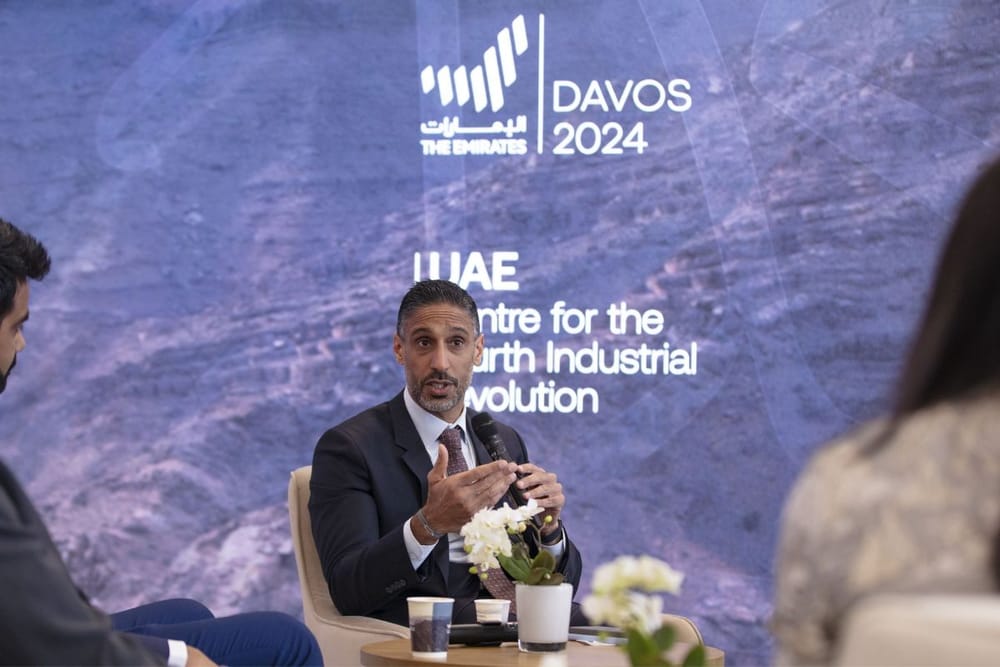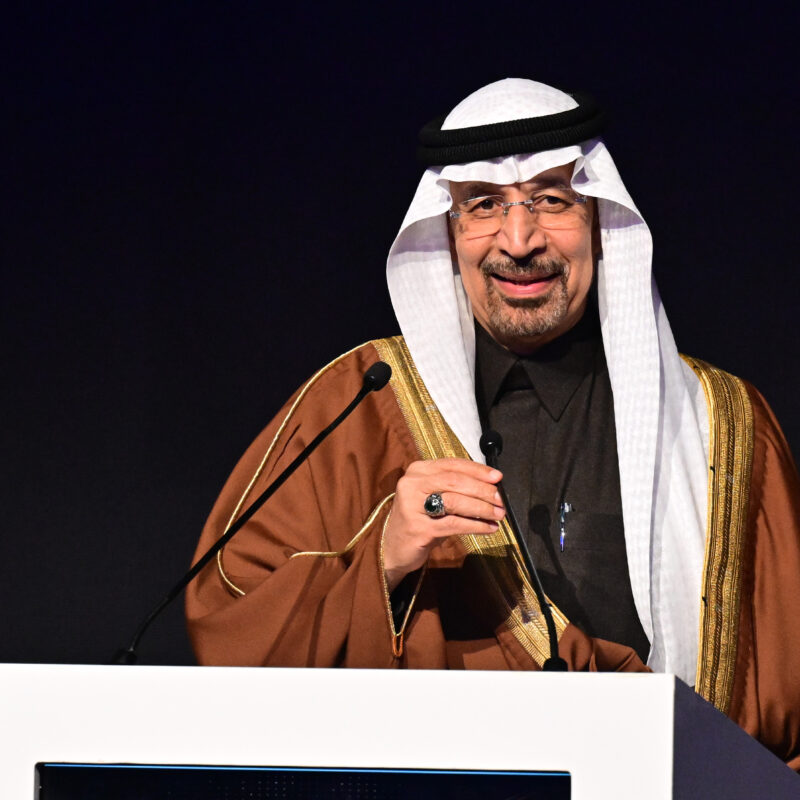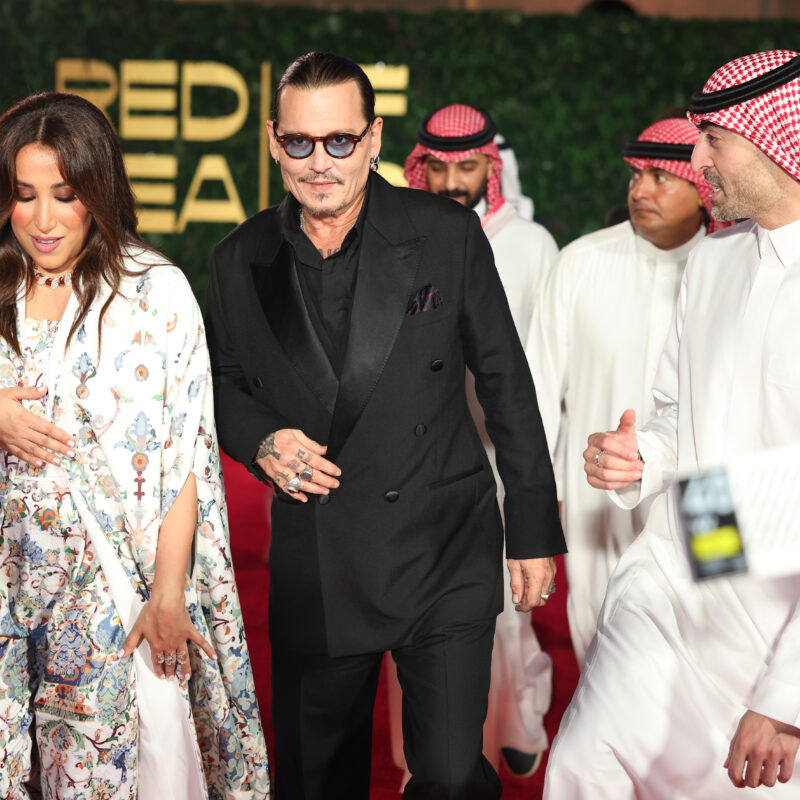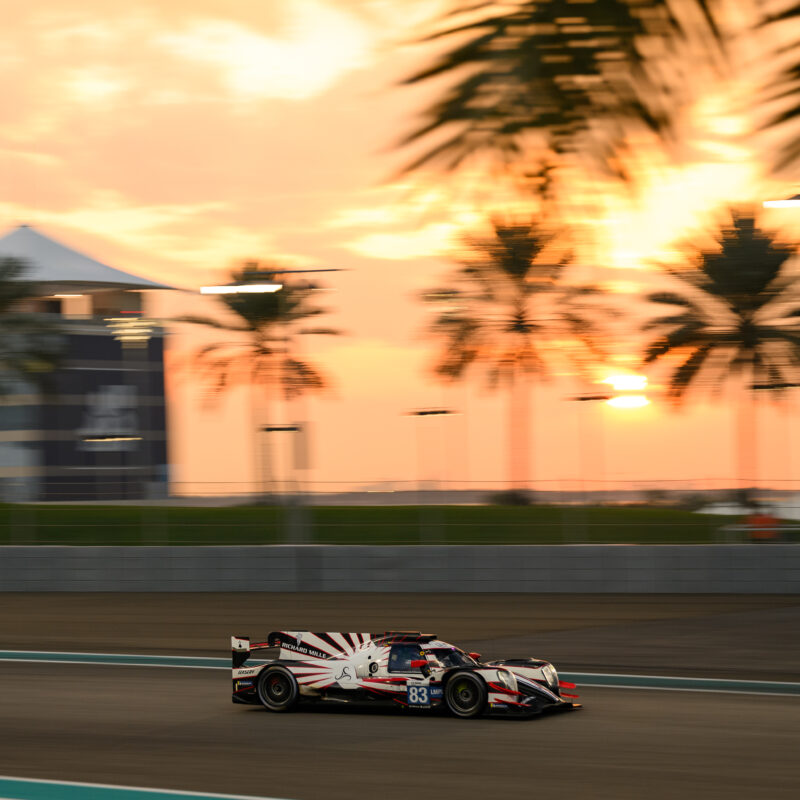
Q&A with Khalfan Belhoul, the investor and future fanatic shaping Dubai
The Circuit caught up with Belhoul in Davos to discuss how the Dubai Future Foundation is thinking about AI — and when exactly Dubai will get flying taxis
DAVOS, Switzerland — Khalfan Belhoul leads the Dubai government agency tasked with shaping the future. Even he acknowledges he gets the question “what the heck does that mean?” quite a lot.
The CEO of the Dubai Future Foundation leads a team of foresight practitioners, researchers and analysts to identify strategic sectors for investment in the medium and long term, in collaboration with the government and private sector. The foundation’s remit includes future forecasting, public policy recommendations, technology training and events, a $300 million venture fund and fund of funds and, of course, the Museum of the Future – one of the biggest tourist attractions in Dubai.
Prior to joining the Future Foundation in 2018, Belhoul founded the Belhoul Investment Office, rolling out an asset allocation strategy spanning private equity, alternative investments, real estate and conventional assets. He has also been a vice-president at Dubai Holding, driving investments in Dubai’s non-oil economy.
The Circuit caught up with Belhoul at the UAE pavilion, along the Promenade in Davos, to talk about the AI hype, what he has gotten out of the World Economic Forum Annual Meeting – and when we can expect flying taxis in Dubai. This interview has been condensed and edited for length and clarity.
The Circuit: What brings you to Davos? Have you been before?
Khalfan Belhoul: This is the second year we have the UAE pavilion. I tell the new guys that come here, they need to strike a balance between their presence in the pavilion and in the Congress Center [where the main World Economic Forum meeting is held], because there are pros and cons of both. Having the pavilion gives us a home, a base, soft power. But the disadvantage is, if you aren’t in the Congress Center you don’t get those shoulder-rubbing moments. Those unplanned connections are actually very, very powerful. So that’s why I keep coming back and forth.
TC: What do you want out of this trip?
KB: Connecting with like-minded people, which is one of the distinct values of the World Economic Forum. You hear the Dubai Future Foundation and you get the question, ‘what the heck are you guys doing?’ The title of our entity is extremely agnostic. Not only the future of mobility, or the future of health, or life and work but all of the above. But clearly, we cannot be everything, right? We have an internal foresight team. They try to understand where the future is headed. And they do that through internal expertise but also through the Dubai Future Forum where we bring 2,000 futurists from all over the world to help us understand where the future is heading. And then we take all that data and we distribute it across various initiatives that span venture funding, regulation, acceleration, entrepreneurship, all the way to launching strategies that are aligned with [public policy] and regulations of the future.
TC: Your background is in private equity. Do you miss your old life and do you bring any of that investor sensibility into this role?
KB: Yes, through the VC arm that we have. I do miss the investment landscape. But I think it’s much more fun when you do it on the inside through venture capital. Private equity is a safer investment. Because you look at tangible assets, you look at businesses that are operational, whereas innovation, disruptive, crazy ideas that are literally non-existent, but they can be a unicorn in a matter of a month or two. So there’s an excitement, because the failure rate is different.
But we don’t look at it as failure but as a learning moment and a pivoting moment and we look at the why. We were blessed with leaders that think like venture capitalists. If you look at the United Arab Emirates, people underestimate that this is a country that 70 years ago, before the formation of the country, were dependent on pearl trading as our main source of business. Then oil was discovered and we were heavily dependent. Now we’re sitting here discussing AI. We’ve gone through quantum transitions. I’m 46 years old now, I’m almost as old as the country, so I’ve seen the whole evolution.
TC: What is the check size from the Dubai Future Fund and what is your invitation to entrepreneurs and founders?
KB: Our fund is around $300 million. Of course we look at financial gain, but we are also an impact investor so we also look at returns on impact of job creation and industry introductions to the ecosystem. So we will invest as patient capital because we know that typical venture capital are driven by limited partners or LPs which are expecting returns and we are the LPS of the fund, which means that we can afford to be more patient. When someone comes in with a deep technology that requires more investment horizon and patience, we come in because we see the light and we see that this can create talent and an ecosystem.
When it comes to direct investment the sweet spot is around the Series A transaction which is from $2-5 million. We also have a fund of funds that has two objectives where we anchor funds in the region with two objectives. One, that those funds generate returns. Second, is to encourage participation from the private sector in venture. When the private sector sees that a government fund is anchoring them, it raises comfort for them to invest in this new high-risk, high-return asset class. The region is emerging when it comes to VC. That’s our role:anchor, catalyze and invest in patient capital to create local entrepreneurs.
TC: AI is certainly driving the conversations happening here in Davos. Are you worried about a hype cycle or a bubble? How do you interpret this?
KB: In my humble opinion, the bubble, the crazy hype was around the metaverse. We still believe in it but that conversation has toned down and the metaverse is redefining itself. When it comes to AI I think the road is clear. It’s coming, it’s coming big. And I think we’ve seen the crazy disruption of GenAI and what that’s done in the last 12 months.
But what we need to also understand is that AI has been around for many years. It’s just that the speed of its development right now with the generative components that’s becoming much more advanced. I think going to your point, do I worry? I’m an optimistic person. Humanity has always adapted. Even if you look at simple things like people jumping on planes or riding elevators. If you went back 100 years and told them they’d be up 30,000 feet, they’d be worried. I think we kind of adapt, we don’t feel it.
TC: When is Dubai going to get flying taxis?
KB: Very soon. We’ve literally tested them and I that’s the sandboxing mentality in Dubai. This has been tested and the key I think is to have legislation that is agile and leaders that are accepting to manage and test new ideas in a confined manner because you need to ensure health and safety as a priority. But then you need to move past that. So the short answer I will tell you it will be very soon, over the next twelve months.


